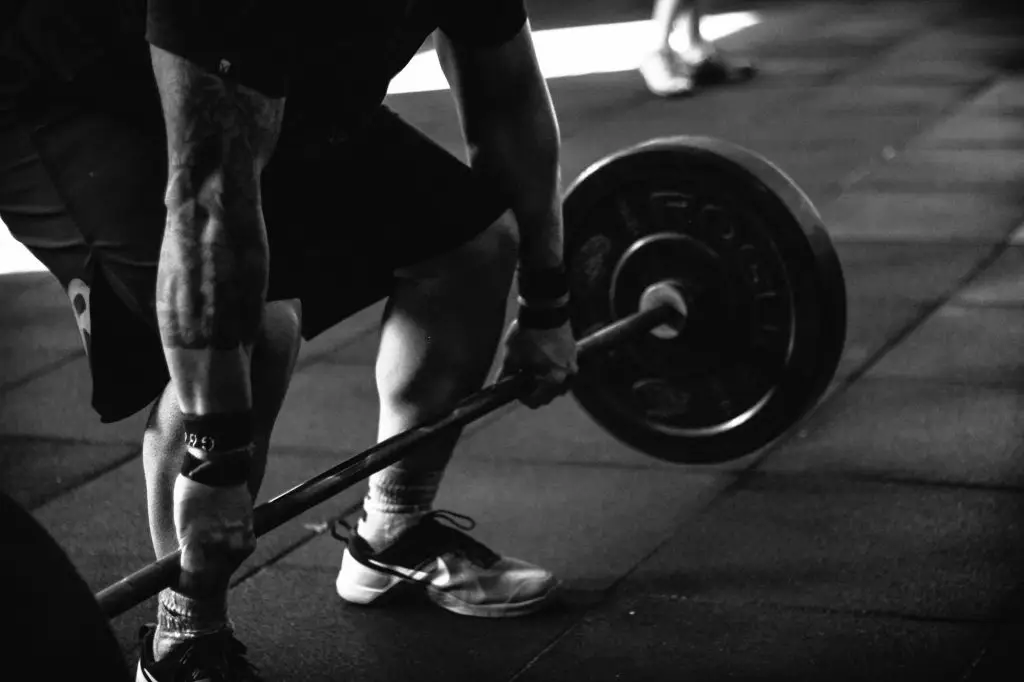Weight loss exercise is a no-brainer. But just as important as the workout itself is how you time the meals around it and what you put into your body. Ever wonder if it’s better to eat before or after your workout? Does meal timing matter when it comes to weight loss? If you’re asking yourself these questions, then you aren’t alone. Most of us are at a loss about exactly what to do concerning pre- and post-workout nutrition. In the following guide, we’ll dig into the science behind workout nutrition. Now, you can understand what to eat and when to eat to maximize fat loss and fitness results.
Timing of Meals-Why It Matters for Weight Loss
With weight loss, it is very easy to get caught up in thoughts of calorie counting and exercising. However, when considering the timing of your meals about when you work out proves to be just as important. This is usually referred to as “meal timing.” It doesn’t only concern what you eat but when you eat it and how that affects metabolism, energy levels, and finally weight loss.
Pre-Gym Food to Lose Weight: Is It Better to Eat Before the Gym?
This is the most common question: to eat or not before working out. There is no general answer to this because each body and each goal of fitness are different. If one is going for weight loss, then pre-workout nutrition might be a little different than it would be if another person is trying to build muscle. Otherwise, the same concept keeps floating around: for your body to do its job, it needs fuel.

Should You Eat Before or After a Workout for Weight Loss?
Fed vs. Fasted Exercise: Which is Better for Weight Loss?
Prolific among those who attempt to maximize fat burning is the concept of exercise in a fasted state, normally before breakfast. The theory goes that your body, when it exercises on an empty stomach, is most likely burning stored fat as a method of producing energy. Some research supports this hypothesis, proposing that fasted exercise results in increased fat oxidation. The drawback to it, however, is that a fasted workout does not always provide enough energy for high-intensity exercise, which may impact your performance and the potential calorie burn.
On the other hand, pre-workout food intake gives one the energy needed for any high-intensity workout. In that connection, if one consumes a meal or snack comprising carbohydrates, it then serves as a direct source of fuel which the body applies to enable one to work out a little harder. The result could be more burning of calories essential for weight loss.
What to Eat Before a Workout for Fat Burning
If you do choose to eat before exercise, what you eat matters. Your pre-workout meal should balance between providing energy and not being so heavy that you feel too full or lethargic. Your focus should be on a mix of protein and easily digestible carbohydrates to keep you going without discomfort.
Following are some great pre-workout snacks:
• One banana with a tablespoon of peanut butter.
• Greek yogurt with a handful of berries.
• A slice of whole-grain toast with a boiled egg.
• Small smoothie: spinach, a scoop of protein powder, half a cup of almond milk.

When to Eat Before Exercise
When to Eat Before Exercise
Timing is also everything when it comes to your pre-workout meal. You should eat about 30 minutes to two hours before your workout. It gives the body an adequate amount of time to digest the food and turn it into usable energy. Eating too close to your workout results in indigestion or sluggishness, whereas eating too far in advance may leave you feeling hungry by the time you start exercising.
Fat Burning After Workout Meal: Should You Eat Immediately After Cardio?
Immediately following a workout, your body is set up for recovery. Exercise drains your levels of glycogen, a stored form of carbohydrates in your body, and damages muscle tissue. Replenishing them by consuming the right post-workout meal becomes important. Eating after a workout will expedite recovery, reduce muscle soreness, and better prepare your body for the next session of exercise.
The Importance of Post-Workout Nutrition
The body, upon ingestion, uses the nutrients ingested after working out to repair muscle fiber and restore energy stores in the form of glycogen. The latter can be very crucial in maintaining lean muscle mass, which contributes to active metabolism and helps in long-term weight loss. The inability to ensure proper post-workout nutrition leaves you tired increases the prospects of a sore muscle ache for longer periods, and may make it difficult for you to recover properly for your next workout.
What to Eat After Exercise to Support Weight Loss
Your post-exercise meal should contain both protein and carbohydrates. Protein is important to repair and even build muscle tissue, while carbohydrates will help to restore the energy stores and provide some energy for recovery. Here are some balanced post-exercise meal ideas:
• Grilled chicken with quinoa and steamed vegetables
• A protein shake with a banana and a scoop of protein powder
• Baked salmon with sweet potatoes and a side salad
• A sandwich of whole grain bread with turkey avocado and spinach
• Low-fat yogurt with a handful of almonds and some honey
Timing of Food Intake after Training
Timing after training will also be another important variable in recovery and fat loss. Individuals undergoing moderate- to high-intensity workouts should eat their meals within 30-60 minutes after finishing their session. This widely accepted time frame is called the “anabolic window,” wherein your body is most efficient at absorbing and utilizing what you will get from your food. However, if the workout is rather low-intensity, such as light jogging or yoga, it is normally sufficient to eat according to your regular meal schedule.
Meal Timing and Weight Loss: What’s the Verdict?
Is it better to eat before or after for weight loss? That, again, would depend on your personal preferences, type of exercise, and what exactly you’re trying to achieve in weight loss. Here’s a quick summary that might help guide you:
• Pre-Workout: Having food before a workout can be great if the intensity and energy requirements are high. You must choose something light, a snack or meal, that must contain carbohydrates and proteins. This will provide good fuel for the workout but keep you light enough.
• Post-Workout: It helps your body recover from the workout and also prepare yourself for the next session. A regular meal containing protein and carbohydrates should be consumed within 30-60 minutes after the workout.
The most one could ever do is listen to his or her body. There are those people who usually perform perfectly well when there is something in their stomach, while some prefer to work out on an empty stomach. You may experiment with the times of meals and see what works for you.
Pre and Post-Workout Nutrition Tips to Keep the Fat Off
To sum it all up, here are some more tips that can help one optimize their workout nutrition for fat loss:
• HYDRATE: Start hydrating pre-workout, then hydrate during and post-workout. Besides negatively affecting performance, dehydration prolongs recovery processes.
• AVOID HEAVY MEALS: Pre-exercise-heavy meals will make you feel uncomfortable and lethargic. Only light, easily digestible foods must be taken pre-workout.
• One should not skip meals, even if one is working out to achieve a weight reduction goal, but it is always good not to skip any meals, especially before and after your workouts. This leads to low energy levels and poor performance in the gym.
• Whole Food Focus: Go for whole foods rich in nutrients: lean proteins, whole grains, fruits, and vegetables, which will power you through both working out and recovery.
Frequently Asked Questions
1. Is working out on an empty stomach better for losing weight?
Working out on an empty stomach, also known as fasted exercise, may be better for some people when it comes to burning fat. This does not mean it is right for all individuals. If fasting exercise makes you feel weak or dizzy, then it is best to eat a small snack beforehand.
2. How soon after the gym should I eat to lose weight?
Eat something within 30 to 60 minutes after your moderate to high-intensity workout. This helps your body with its recovery and muscle-repair process. If the workout is low intensity, just eat at your scheduled time.
3. What are the best pre-workout foods to consume that help in weight loss?
Some great foods to consume pre-workout would be a banana with a little peanut butter on it, Greek yogurt with some berries, or a small smoothie with some spinach and protein powder. You’ll want to just balance out your protein and carbohydrates for sustained energy.
4. If I am looking to lose weight, should I consume carbs after a workout?
Yes, after a workout, ingested carbohydrates help to fill glycogen stores, important for recovery. Combine carbs with protein for muscle repair and overall support of weight loss goals.
5. Will skipping meals after exercise slow down weight loss?
Skipping meals after exercising can impede recovery and may impact muscle repair, which could negatively affect your overall weight loss effort. It is, therefore essential to take a healthy meal after exercise to maintain your metabolism and to keep your energy levels up.
Conclusion: Finding What Works Best for You
Ultimately, pre- and post-workout eating for weight loss is very personal and depends on what works best for your body and goals. Both pre- and post-workout nutrition makes all the difference in how well you feel during the workout, how fast you recover, and would you say in a broader perspective, how efficiently you’ll be losing weight in time? This will give you optimized workout results, and with that, your progress towards your goal of losing weight will be gradual, simply because you are experimenting with meal timing and focusing on balanced nutrient-dense foods.
